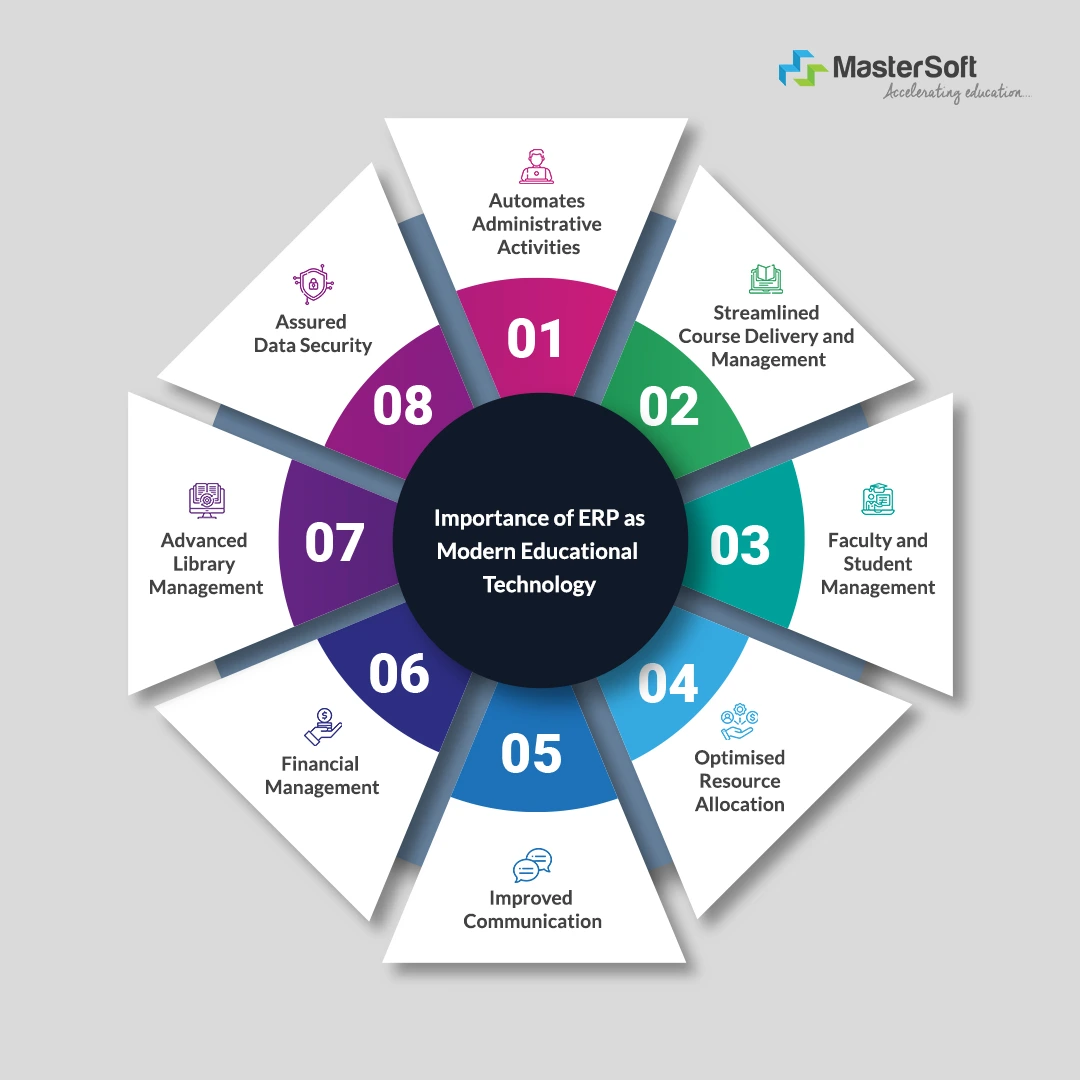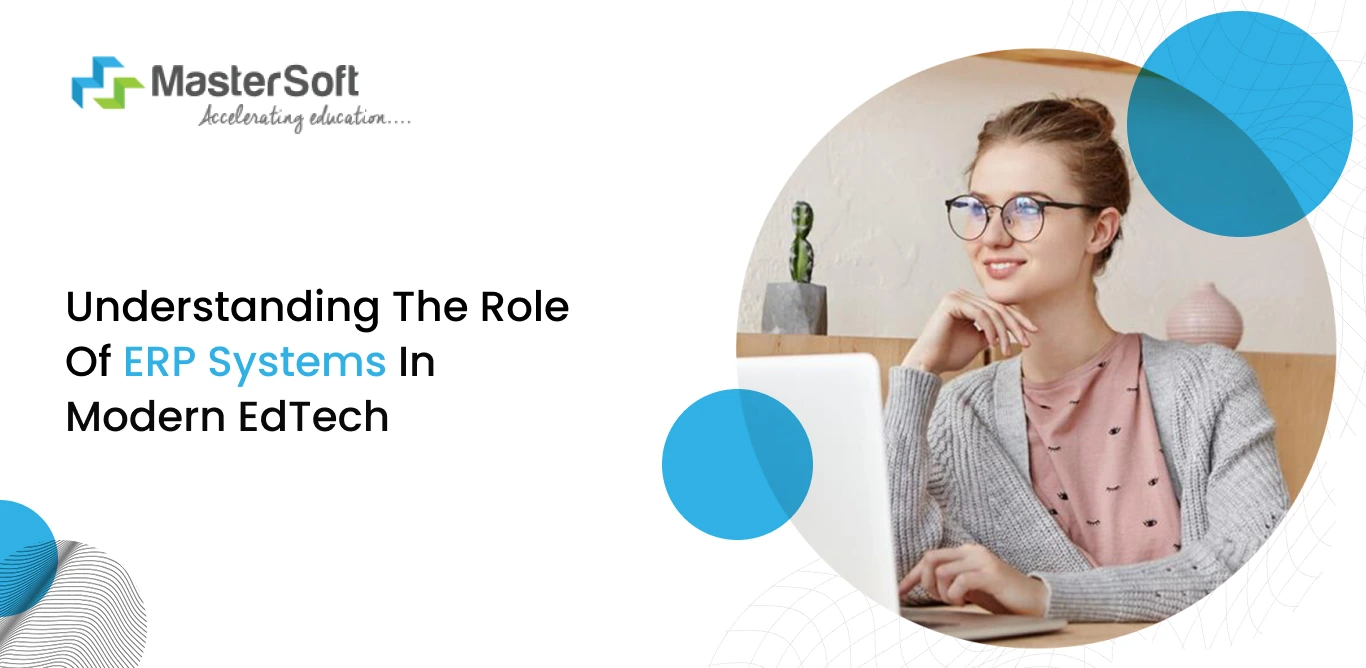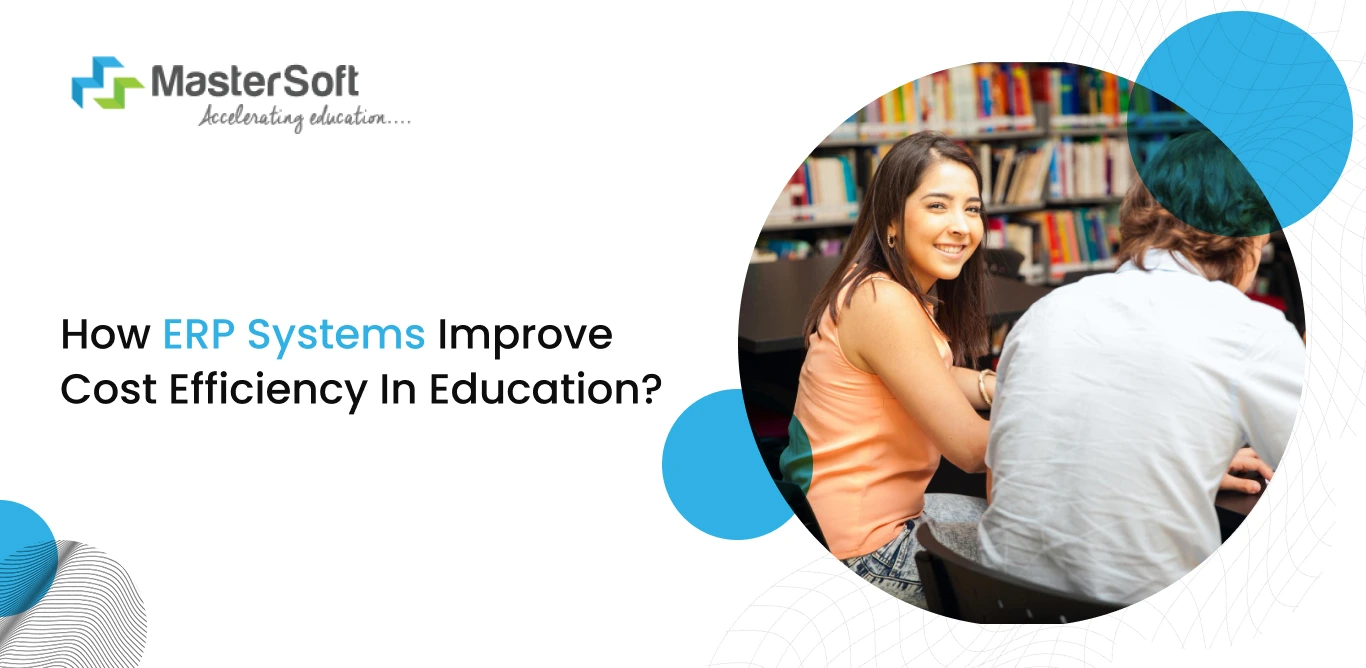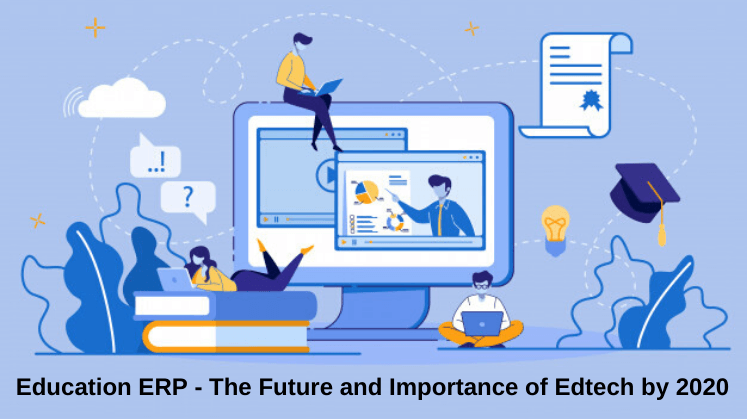23, Dec 2024
The Industrial Revolution 4.0 has transformed the way organisations function by accelerating the pace and reducing errors and inconsistencies. The education sector has benefited significantly from incorporating technological solutions like ERP systems.
Therefore, it is hardly surprising that Education 4.0 has been a cornerstone in incorporating such innovative tools to automate administrative activities. It has also transformed the teaching and learning methods, enabling educators to cater to varying learning styles.
Let’s explore how ERP systems contribute to modern education and ed-tech:
What is ERP?
ERP, or Enterprise Resource Planning, is a state-of-the-art software that supports organisations in streamlining their core operations. It provides a centralised platform through which institutes can execute and maintain various activities (human resources, finance, sales and marketing, inventory, etc.).
In the context of education, ERP functions as a primary tool that enables higher educational institutes to simplify basic and specialised activities effectively. For instance, the administrative staff no longer needs to work overtime to carry out multiple activities simultaneously, risking unintended errors or delays.
Institute team members can utilise the system to carry out administrative tasks conveniently, ensuring reduced manual errors and increased productivity. The system has also proven to be a crucial modern ed-tech tool, providing insights for various organisational processes.
However, there’s more to it than meets the eye; hence, let us understand in detail the role of ERP in the modern education system.

Importance of ERP as Modern Educational Technology
1. Automates Administrative Activities
Imagine having to execute multiple tasks manually and ensure consistency; it is as difficult as it sounds, leading to exhaustion and procedural delays. Fortunately, educational institutes can leverage the software to streamline multiple administrative activities such as:
- Automate the end-to-end admission process through a centralised platform where students can complete the application process.
- The system verifies the uploaded documents automatically through the predefined criteria.
- Facilitates convenient status application tracking by providing real-time updates to admin and students.
- Tracks faculty and student attendance and generates real-time reports.
- Teachers and admin staff can automate class scheduling activities.
2. Streamlined Course Delivery and Management
The course development and delivery processes have changed drastically, especially due to increasing technological integration. Innovative ed-tech solutions provide necessary assistance to educational institutes to streamline course delivery and management.
It helps to curate and maintain comprehensive details of the course catalogues, including descriptions, assignments, etc. Staff can use the system to improve class scheduling by considering various factors (teacher availability, room availability, student preferences, etc.).
On the other hand, integration with learning tools like the learning management system helps to expand the scope of learning. Teachers can implement online learning activities and project or assignment submissions, discussion boards, etc.
Moreover, students can gain access to digitalised course materials, eliminating the need to rely on notes in case they miss the classes. The institute management can take advantage of the performance metrics and student attendance to determine course effectiveness.
How ERP Systems Improve Cost Efficiency in Education?
3. Faculty and Student Management
Annual or mid-term reports and impromptu question-and-answer sessions can hardly provide a clear picture of a student’s potential and competencies. In contrast, tracking students’ ongoing progress with the help of the software is an ideal alternative.
The ERP software enables teachers and admin to organise all student information (academic records, personal details, attendance reports, fee invoices) in a single database. Teachers can monitor individual learners’ progress through weekly and monthly academic and attendance reports.
On the other hand, the system also enables institutes to carry out comprehensive faculty management by providing comprehensive faculty information. They can track faculty performance through timely evaluations and checking teaching effectiveness metrics.
Moreover, it facilitates effective leave management by automating the leave application and approval process.
4. Optimised Resource Allocation
The software’s centralised database helps to streamline the details of all institutional resources, such as laboratories, classrooms, equipment, and human resources. In effect, admin and management can track the resource availability and determine whether or not they meet the demands.
They can allocate appropriate resources according to the needs of the students and teachers as well as based on availability and capacity. Consequently, it helps to reduce resource underutilisation or wastage.
Furthermore, the administrative department can leverage the ERP system’s historical data to determine future requirements. That is how they can anticipate student enrolment rates and program or course demand; hence, they can optimise resource allocation.
Transform Learning Outcomes with MasterSoft's Outcome-Based Education
5. Improved Communication
The importance of timely communication is undeniable in educational institutes, especially because it helps to avoid misinterpretation of information. That is where the ERP software proves to be an appropriate solution by providing a common communication platform.
Students, teachers, parents, and staff can stay updated on key information such as upcoming events, exams, fee notices, assignment submission deadlines, etc. Besides, parents can use the parent portal to check their ward's academic progress reports, attendance records, and fee statements.
On the other hand, online consultations via the system help students to interact with teachers and clarify their doubts accordingly. Institute team members can utilise internal communications tools like messaging, chat, and video conferencing to exchange impromptu information or conduct team meetings.
6. Financial Management
Establishing and regulating a well-structured financial system is crucial for educational institutes; therefore, they require robust ed-tech software beyond simple computerised applications. For instance, the ERP software’s tools allow the admin or accounts team to track and manage financial activities.
Consequently, it streamlines budgeting, revenue management, expenditure tracking, financial reporting, and fee collection/submission. What’s more, the system generates financial reports such as balance sheets, income statements, and cash flow statements.
Furthermore, institute management can gain insights into overall expenditure and revenue streams, enabling them to make informed financial decisions.
7. Advanced Library Management
Despite the availability of free online resources, libraries continue to be an important storehouse of knowledge and educational material. However, institutes must streamline the collection and management of library resources to eliminate manual work.
Institutes can leverage the system to automate the book cataloguing process, which includes allotting ISBNs, subject classifications, and barcodes. Moreover, it streamlines circulation management by facilitating the issuing, renewing, and returning of books.
Besides, it helps to carry out inventory management by organising library resources (articles, books, journals, research papers, etc.) effectively.
8. Assured Data Security
Storing student and institutional data online or in software is cost-effective, but does it guarantee protection from online threats? This is a common question or issue that stakeholders have raised several times; fortunately, the ERP system employs robust security measures such as:
- Encryption
- Role-based access
- Multi-factor authentication
- Firewall protection
Therefore, the system protects institutional data from unauthorised access and detects and sends notifications about suspicious activities. Furthermore, advanced tools like MasterSoft’s ERP system are cloud-enabled and comply with security regulations like the General Data Protection Regulation (GDPR).
Conclusion
ERP systems were originally developed for corporate organisations, but over the years they became a crucial tool for the education sector after undergoing a major transformation. The system caters to the specific needs of schools and colleges/universities, helping to improve administrative and other core functions.
Want to enhance students’ thinking abilities but don’t know where to start? Learn More
Mobile: 08448010216
Email:info@mastersofterp.com











